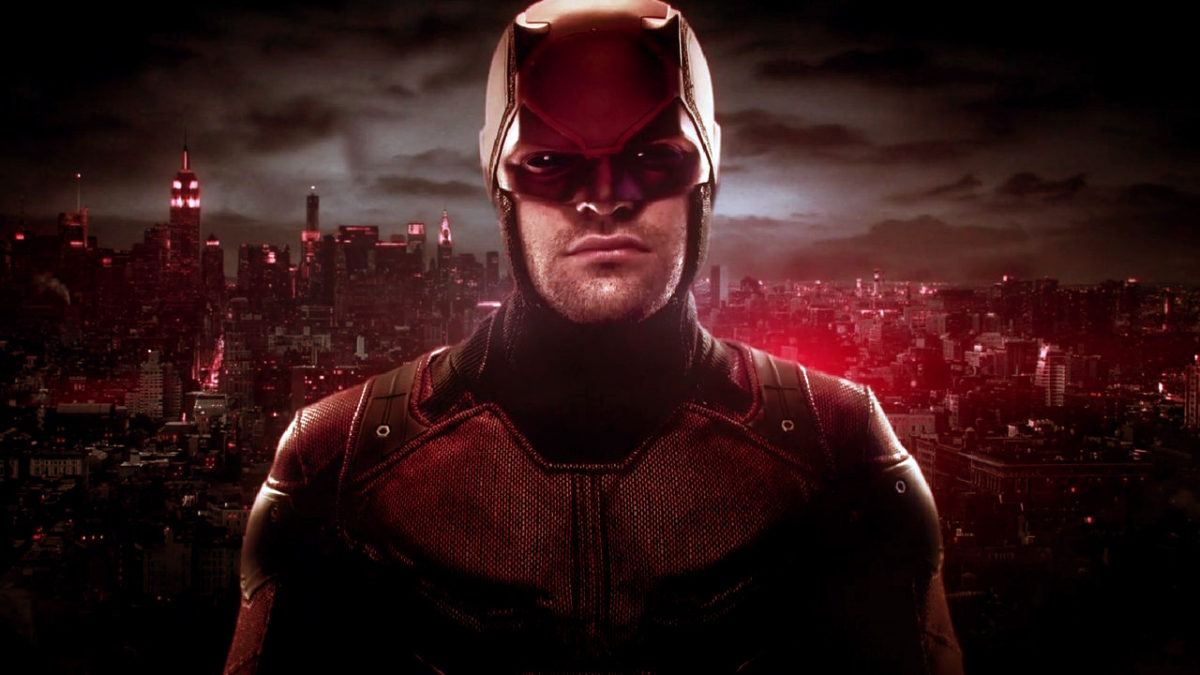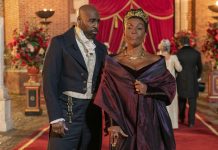By the sixth episode of Series 1 of Daredevil, the titular hero (Charlie Cox) is more a fugitive from the law than ever, framed by Wilson Fisk (Vincent D’Onofrio) for the murder of several police officers as well as for a series of bombings orchestrated by Fisk intended to liquidate potential rivals in the Russian Mafia.
The following two episodes offer something of a break from the main action of the series, and a chance to explore the back stories of both the hero and the villain. Episode 7 sees the introduction of Stick; the vaguely Clint Eastwood-esque blind ninja who we see became Matt’s sensei following his father’s death, and who has now returned to New York to fulfil a mysterious mission of his own.
Bringing the character to life in fact isn’t Clint Eastwood, but Scott Glenn, who gives a suitably grizzled performance, and makes a good sparring (in multiple senses) partner for Cox, illustrating the disappointed mentor/betrayed student dynamic between the two.
Overall, of all the series, episode 7 is the one that stands apart from the main plot the most, which does rather mark it out as an oddity. However, it seems to be setting up events further down the road, so it can only be hoped – at this point – that what this means is that there is a second series of the show is on the cards.
Following that, episode 8 sees us delve into the childhood of Fisk, where we learn that he murdered his abusive father at the age of 12, swearing then that – even if he were forced to do despicable things to achieve his ends – he would never be cruel simply for the sake of cruelty, as his father was. The episode culminates with Fisk stepping out from behind his curtain of anonymity and presenting himself to the people of Hell’s Kitchen as a philanthropist, with only Matt, Foggy, Karen and journalist Ben Urich (Vondie Curtis-Hall) aware of what he really is.
Events take a turn for the worse for the heroes in episodes 9 and 10, in which Matt is almost killed in a fight with the Japanese gangster Nobu and then – in his injured state – unmasked by Foggy (Elden Henson), causing a rift between the two friends born of Foggy’s prior mistrust of Daredevil, and his sense of betrayal that Matt did not share his secret with him. Again, this is an episode that showcases the bond between two characters, brilliantly realised by Henson in particular, which – as with Stick in episode 7 – juxtaposes the events of the past (the pairs carefree days at law school) with their current, apparently hopeless, situation. The remainder of the series sees the protagonists attempt to overcome these personal hurdles and find the evidence they need to bring Fisk to justice once and for all.
Characterisation and character interplay is one of the key elements of any drama (and executing it believably goes quite some considerable way towards making one successful).
I mentioned in the last part of the review the strengths of the main protagonists, but I feel there is some room for reiteration here in terms of the main character. As events take an ever more hopeless turn in the second half of the series, and Fisk’s actions become ever more heinous, Cox magnificently captures Matt’s increasing inner conflict as to whether he is doing any real good in either of his vocations increases. This eventually causes him to reflect that perhaps the only way to successfully stop Fisk is to kill him; an act which would violate his faith irreparably.
Of that faith, I also think it’s one of many things to praise the series’ writers for that it Matt’s Catholicism, and spiritual conflict in light of it, is played completely straight, as opposed to being treated in any way glibly or as naivety on Matt’s part.
However, in addition to the performances of the four central characters, it’s worth pointing out the strengths of some of the recurring supporting cast as well. Vondie Curtis-Hall as Ben Urich, for example, delivers a great performance throughout the series; marrying a drive to see the truth and good win out over evil with downtrodden world-weariness that has come through seeing the consequences for himself and those he holds dear to great effect that are the result of pursuing that drive (no mean feat, when dealing with two such seemingly sharply contrasting character traits). As a result, Ben’s ultimate fate in the series is, without giving anything away, the most affecting of all the characters.
Meanwhile, on Kingpin’s side of the equation, Toby Leonard is suitably oleaginous and quietly sinister as Fisk’s right hand man, James Wesley, whilst Ayelet Zurer – playing Fisk’s lover Vanessa Marianna – gives an intelligent and convincing performance, seemingly embodying the age old adage that behind every great man, there stands a woman.
The bottom line is that the cast (from the principles, through the supporting, right down to the extras) is uniformly good. The writing is, likewise, consistently strong throughout; with the series being well plotted and well paced in equal measure.
With this in mind, criticism of the series is rather difficult, and a large part of what can be criticised is largely down to personal preference, and probably constitutes the textbook definition of “nitpicking”. Nevertheless, there are some, minor elements that I found irksome or can see potentially being irksome for others.
The camerawork in many episodes, for example, would often employ the hand-held ‘shaky-cam’ aesthetic; not in the fight scenes so much (where one would expect and, to an extent understand, such technique to be employed), but instead – rather unusually – in dialogue scenes between two characters, in which the (pointless) quivering of the camera is fairly well the only thing about the scene that is in motion. It is not always the case, but when it does occur, it can be a distraction.
A more specific potential criticism comes at the very climax of the series. I mentioned in the first part of the review that there was a raw verisimilitude to the fight scenes and the violence in the series. This remains the case right up until the moment where Matt eschews the simple black ninja-like costume he wears for the majority of the series in favour of his altogether more famous red, horned attire. At precisely this moment, the fighting (namely the climactic head-to-head with Fisk) moves away from this verisimilitude into altogether more familiar comic book movie territory, in which characters can take punch after punch with little or no ill effect whilst simultaneously verbally sparring with one another. Whether or not one sees this as something of a letdown following the brutality of the rest of the series, or simply accepts it as coming with the territory when dealing with a superhero franchise is entirely dependent on the preferences of the viewer. Personally, I didn’t find it a problem, but I would be able to see where viewers were coming from if they did.
In spite of these very, very minor flaws, overall the first series of Daredevil has been a resounding success. Showrunner Steven DeKnight and his team have crafted 13 hours of serious, hard-hitting drama, that have left enough character arcs open-ended enough (and, hopefully, has been well received enough) to pave the way for a second series to be commissioned. I’m confident that this will be the case, just as I’m confident that the high watermark set by this series can be equalled by any that may follow.
All 13 episodes of Daredevil are available to view on Netflix.
































[…] posted on filmandtvnow.com […]
Comments are closed.